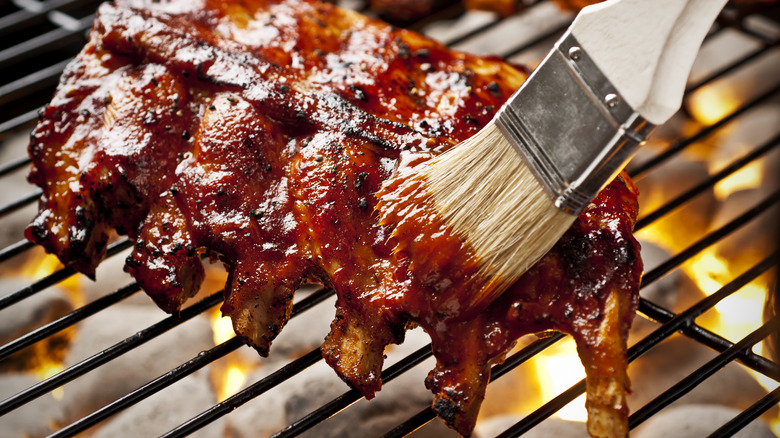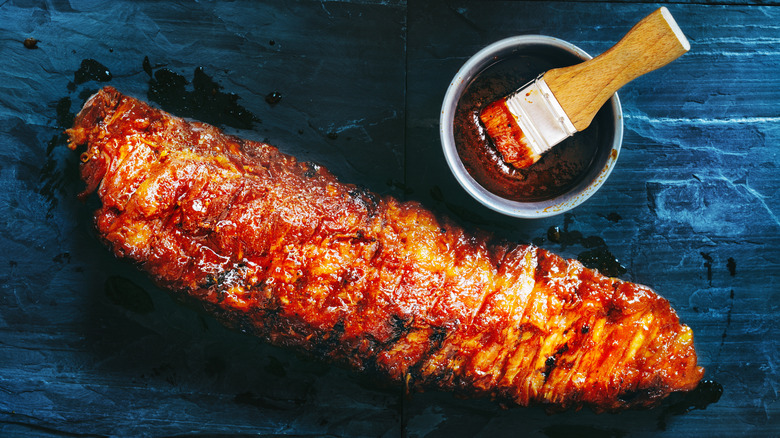Why You Should Avoid Blackstrap Molasses In Your Bourbon Glaze
Bourbon isn't just a favorite among bar-goers and whiskey enthusiasts; many cooks also love using good bourbon to add a boozy kick or a layer of complexity to their dishes. Beneath the alcohol, bourbon offers a wealth of flavors: smoky and oaky notes, hints of vanilla, spices, butterscotch, and honey. If that sounds appealing to you, here's one recipe that you can try as an easy and tasty introduction to cooking with bourbon: a bourbon glaze.
Slather this smoky, sweet glaze over your choice of protein, and you're in for quite a dining experience. Despite the fancy name, a bourbon glaze is simply a reduction of bourbon, sugar, vinegar, sauces, and molasses. However, while you're making the glaze, don't make the mistake of using blackstrap molasses. It's not like your average light molasses, and can actually make your glaze taste bitter! If you want your dish to turn out perfectly balanced, it's crucial that you stick with lighter varieties.
What even is blackstrap molasses?
There are three types of molasses, and they're all a byproduct of sugar production. After sugarcane juice is boiled to produce sugar crystals, it's filtered to separate the juice from the crystals. The remaining liquid after this stage is light molasses, also known as first molasses. Some manufacturers boil this further to extract more sugar, resulting in dark molasses (second molasses) with a fuller, bolder taste. Blackstrap molasses, made from a third boiling, is richer in nutrients but intensely bitter, as almost all traces of sugar have been removed.
While blackstrap molasses has its uses, its bitterness makes it unsuitable for bourbon glazes, which should taste sweet and savory. For a bourbon glaze, light molasses is the way to go for delicate sweetness, or dark molasses if you prefer a bolder flavor.
However, that doesn't mean the bitterness of blackstrap doesn't have a place in the kitchen. It's a bit niche, and admittedly, very few recipes call for its use. But it's still useful in some dishes when you need deep flavors, like in this pomegranate-molasses barbecue sauce. Unfortunately (or fortunately, depending on how you look at it), it's not made to be paired with a bourbon glaze!

